Every cup of coffee from Zhangli Village tells a story of transformation, illustrating the harmonious blend of China’s rural environmental governance and power services, painting a fresh portrait of rural beauty.
For two decades, the “Green Rural Revival Programme” has breathed new life into thousands of villages. In the “hometown of overseas Chinese,” Old Mr.Bao has stepped up as the leader of Zhangli Village. Supported by heartwarming power services, an increasing number of overseas Wenzhou merchants are returning home. They are igniting cultural and creative industries in Zhangli Village and sharing dreams of prosperity with their fellow villagers. Concurrently, the vision of a zero-carbon village is coming to fruition...

Crossing the Qidu Bridge in Lucheng District, Wenzhou City, in just five or six minutes, one reaches the quaint corner of Zhangli Village. The air is rich with the aromatic scent of coffee, evoking the feeling of stepping into another realm and invigorating one’s senses. Beneath the shadow of the Qidu Bridge flows the Oujiang River, the second largest river in Zhejiang Province. Over time, its tidal ebbs and flows have gently laid down sediments,giving rise to a small isle in the river’s lower stretches. This is Qidu Island, hailed as the “Green Pearl upon the Oujiang River.” Nestled in the southwestern tip of Qidu Island is the coffee-scented Zhangli Village.
Rewinding back to the 1950s and 1960s, Qidu Island was a place of seclusion with its economy lagging behind its counterparts. Before the era of “reform and opening-up”, Qidu had lacked access to tap water and electricity. The inhabitants could only fetch water manually and illuminate their nights with kerosene lamps. To the older generations of Qidu, Zhangli Village was once a barren place, devoid of landscaping, industry, and hope. Tainted with a reputation for being “dirty, disorderly, and under-developed”, a saying was once widely spread: “Women won’t marry men in Qidu.”
However, Zhangli Village has undergone a remarkable metamorphosis since then. Today, its renewed vibrancy has become the envy of outsiders. The secret to this transformation? It lies in the bustling storefronts, in the animated chatter of shopkeepers with their amiable dialects, and in Old Bao’s café, quietly standing at a corner of the village.
Anchored by the promise of home: 13 years abroad and returned
Bao Aitong, the current Party branch secretary of Zhangli Village on Qidu Island, Lucheng District, Wenzhou, described Zhangli Village as “backward” two to three decades ago. It was not only the smallest, but also had the worst environmental conditions among all six villages on Qidu Island.
In the past, owing to its remote location and subpar transportation infrastructure, Qidu Island was rather isolated from urban areas. It suffered from a lack of infrastructure, stagnant industries, and a constant threat of typhoons and floods, given its riverine location. True to the bold spirit of the Wenzhou people, the island’s residents ventured beyond their home, seeking better livelihoods elsewhere. Many from Zhangli Village followed suit.
Imbued with the Wenzhou spirit of “daring to be the world’s pioneer,” Old Bao too set his sights abroad. “I departed in 2000, taking my family and our most precious possessions abroad. At that point, I had no intention of returning,” reminisced Old Bao. That year, he obtained labor visas for his family and immigrated to Italy with his family. There, starting humbly as a dishwasher, Old Bao eventually became the boss of himself. Together with his daughter, they ran eight cafés in Italy. The whirlwind of work and the captivating Italian coffee culture gradually faded the memories of his homeland.
However, in 2013, familial responsibilities beckoned him home. Old Bao’s initially planned three-month visit to secure a hukou (Chinese residency permit) for his grandson transformed into an open-ended stay.
“I was most surprised that the journey from the city back to the village took merely 10 minutes,” Bao Aitong observed. He was referencing the Qidu Bridge, which, after a year of operations, had bridged Qidu Island with the urban heartbeat and integrated it into the Binjiang Central Business District (Binjiang CBD).
His return coincided with Zhangli Village’s nascent developmental phase. Upon learning of Old Bao’s return, the neighborhood administrators recognized his potential and invited him to stay. They sought his expertise to capitalize on the timely opportunity presented by the “Green Rural Revival Programme.”
This strategic initiative, conceived, deployed, and facilitated by President Xi Jinping personally during his tenure as the Party Committee Secretary of Zhejiang Province in 2003, aimed at revitalizing the countryside. Beginning with enhancing the living environment and spiraling outwards to a more holistic transformation, a decade into this historic endeavor,tens of thousands of villages across Zhejiang Province were witnessing monumental shifts of their lives.
On the eve of his previously planned departure, Old Bao stood by the Oujiang River’s dam, surveying the lands that once cradled his youth with care: tall structures eclipsed trees, electric poles dotted the landscape, transformers sprung up, and high-rises stretched skyward. As he looked around, civil engineering projects were unfolding everywhere,painting a picture of a village bustling with vibrancy and undeniable progress:“I can’t pinpoint the exact reason, but a crystallized resolve pushing me to stay and contribute.” With the blessings of his family, Old Bao embraced his new role as the Deputy Secretary of the Party Branch of Zhangli Village.
A café’s debut parallels the countryside’s revival
Guiding the villagers in tasks such as road construction, installing street lights, river dredging, and landscaping, Old Bao found being the Deputy Secretary of the Party Branch even more demanding than running cafés overseas. After a few years, Zhangli Village had been literally “renewed”.
Yet, in his moments of leisure, what Old Bao craved most was the distinct “fragrance of coffee.” His daughter, remembering his daily coffee ritual, soon sent him some sizable packages of coffee beans from Italy.
A cup of coffee, invigorating and uplifting, is ideal for moments of quiet reflection and conversation. Could the villagers also savor this foreign delight? This question lingered in Old Bao’s mind.
In the beginning, only a handful of villagers would gather in Old Bao’s yard for coffee, and their reactions were mixed, to say the least.
“Isn’t this a foreign version of Chinese herbal medicine?” they’d quip.
“Starting a café in this village is mere folly.”
However, Old Bao remained unfazed, and the “Old Bao’s Café” sign, handcrafted on his request, remained proudly displayed.
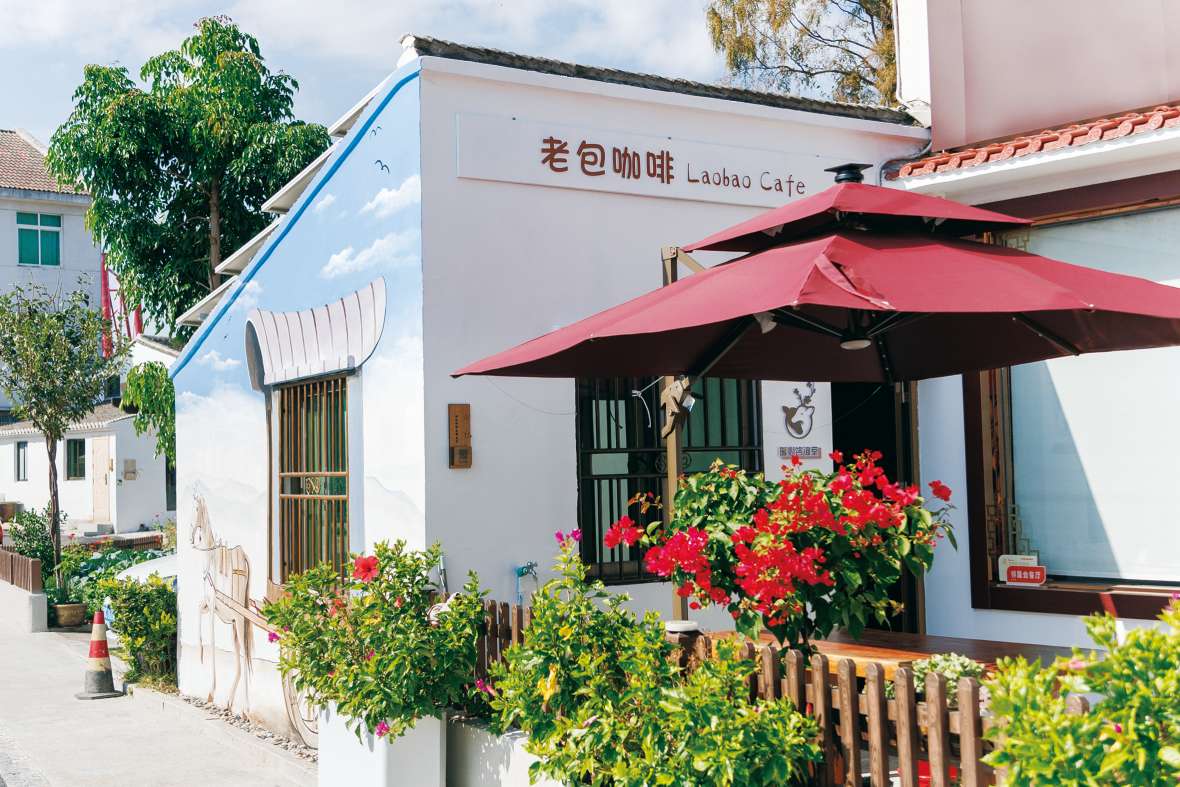
By 2015, the momentum of the “Green Rural Revival Programme” was undeniable. Bao Aitong spearheaded initiatives in Zhangli Village, such as renovating farm structures, greening roadsides, and implementing water treatment projects, that is, treating sewage, flood control, drainage of waterlogged water, ensuring water supply and saving water, continuously fostering rural environmental stewardship. At the same time, the village witnessed the transformation of its electric power infrastructure. To enhance the rural aesthetic, State Grid Wenzhou Power Supply Company removed 4 kilometers of 10 kV power lines along the village’s river, investing RMB 400 million to construct Wenzhou’s longest river-bottom cable tunnel. This allowed the quadruple-loop 220kV high-voltage line for the island’s electricity, and its accompanying pylons, to be seamlessly integrated beneath the river’s surface. Additionally, outdated electrical meter boxes in the village were upgraded, and transformers were adorned with artwork that reflected the village’s character. Even the power facilities were morphed into attractive landmarks in the village.

The transformation of Zhangli Village was profound, starting from the outside to the inside. From the bustling wonton shop at the village’s entrance, to the tea store, the striking cultural auditorium, and of course, Old Bao’s café, the village brimmed with renewed vitality. Seizing the moment, Old Bao revamped the living room and garden on his residence’s ground floor. He decorated the courtyard with five wooden table sets and acquired a state-of-the-art coffee machine. The Old Bao’s Café was now fully “operational”.
With the village’s renewed appearance, more young people were enticed to return. Tourist numbers swelled annually, positively impacting Bao’s café business. Beyond the confines of the village, coffee lovers grew in numbers, and conversing at the café steadily became an ingrained habit among the villagers.
Bringing overseas natives back home with trustworthy power services
Zhangli Village is home to 365 households and a permanent population of 1,028 and it also connects to over 2,300 individuals from overseas Chinese communities, as well as those from Hong Kong, Macao, and Taiwan, making it a representative hub for returned overseas Chinese. To rejuvenate Wenzhou’s economic vibrancy, the Wenzhou Municipal Government launched the “Return of Wenzhou Merchants” initiative in 2012. Its primary goal was to beckon over two million business-minded Wenzhou natives who had ventured abroad back to their roots for investment. As the initiative gained greater influence, many of these merchants, driven by nostalgia, chose to return and start businesses in their hometown. Among them was Old Bao, but he wasn’t the only one. Zhangli Village saw a flux of returnees.
As they built houses, furnished interiors, and opened stores, one aspect remained paramount: a reliable power source. To bridge the “final kilometer” of power supply, the Lucheng Power Supply Branch of State Grid Wenzhou Power Supply Company introduced a pilot neighborhood power service station co-built by the Zhangli Village and the company. Through several upgrades, this station incorporated an “integrated terminal, remote online customer service, and smart robot”, evolving into a comprehensive power service booth. It offers a range of self-service features ranging from electricity registration, payment, bill printing, and consultations. The power supply services are available 24/7, encompassing online assistance, door-to-door service, local neighborhood support, and delegated service handling. Reinforcing their dedication, the power supply company launched the “Red Boat · Future Station” in Zhangli. This station, with its Red Boat Party member service team, collaborates closely with the Party Committee of the village, resolving any electricity-related concerns of the returning Wenzhou merchants remotely.
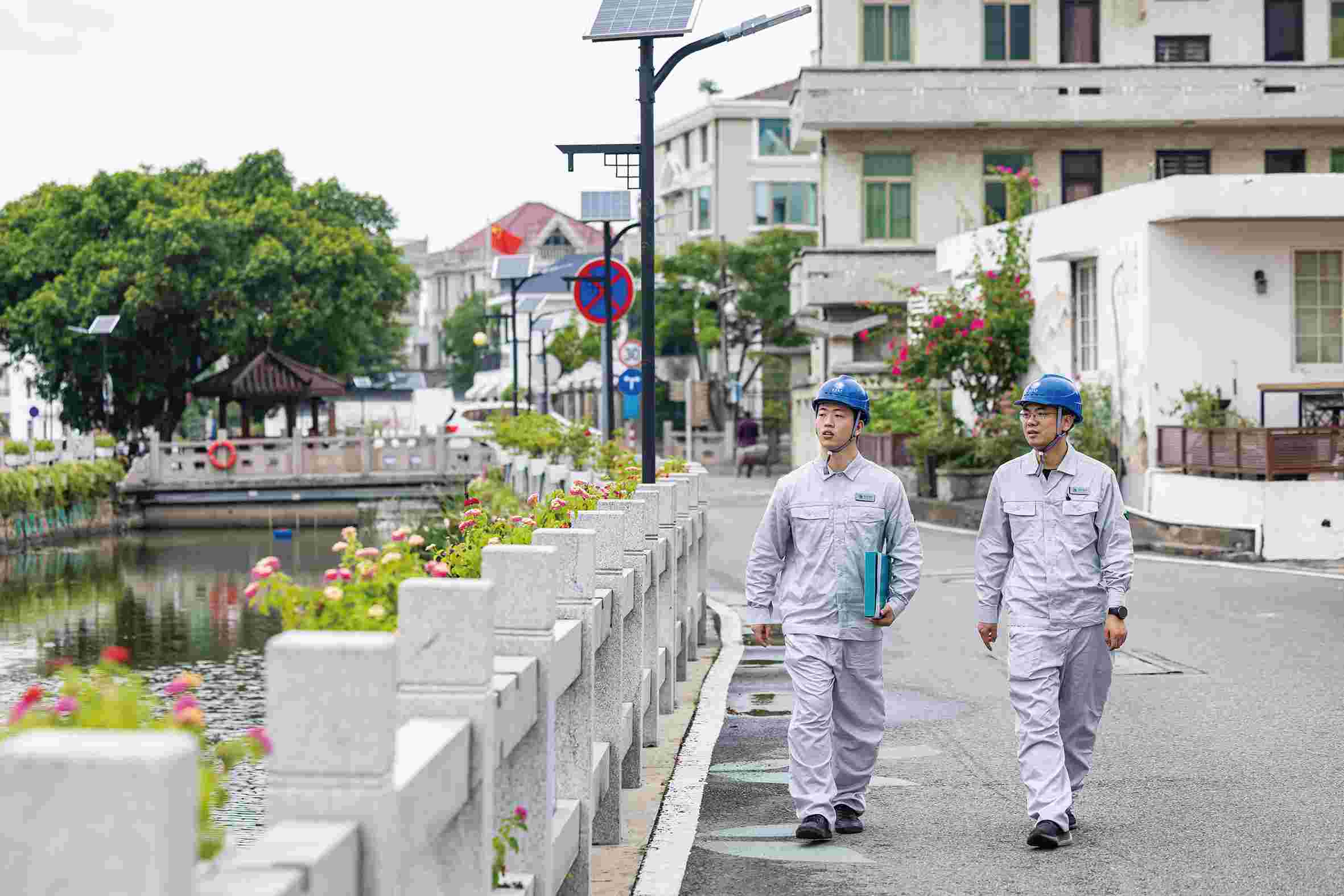

Zhangli Village is now equipped with low-voltage monitoring terminals, which enable real-time power outage monitoring and swift fault detection. On one occasion, when Old Bao’s café experienced an electrical hiccup, and a short time later, the power company’s team arrived and addressed the issue. “I was just about to ring you up, and here you are! Impressive speed!” appreciative Old Bao remarked.
This enhanced electrical support not only accelerated the village’s business development but also diversified it. Over 40 enterprises, spanning design, photography, Chinese studies, floral art, animation, homestay, and coffee and tea artistry, have made Zhangli their home. A testimony to this growth is evident in the village’s transformer capacity, which has almost doubled from 1,430 kVA a decade ago to 2,690 kVA today, a stark transformation.
Enhancing livability and industry potentials with reliable and intelligent electricity use, Zhangli Village’s transformation has attracted another wave of returnees eager to tap into the burgeoning cultural and tourism industry. Many traditional homes have been repurposed into niche eateries, artistic dining spots, and innovative homestays, infusing the village with renewed vitality. Throughout Zhangli, visitors are greeted with intricate wall murals that beautifully capture the essence of Jiangnan culture. The finesse and vibrancy of these artworks never cease to astonish. Social media platforms buzzed with mentions of Zhangli Village, elevating its status to a “cyber-celebrity” village. It’s now heralded as a dreamy,poetic escape within arm’s reach of the city.
Spearheaded by Old Bao, Zhangli has garnered prestigious accolades, including the National Village for Civilization Progress, Provincial Demonstration Village for Beautiful Countryside, and Provincial Demonstration Village for Leisure Tourism. It’s no surprise, then, that Old Bao was reelected as the Party Branch Secretary of Zhangli Village for the third consecutive term. For Old Bao, the real reward lies in the nuanced details: the impeccable service that villagers receive, the thriving local economy, and the smiley faces of tourists as they relish their time in Zhangli. These are the moments that bring him unparalleled joy and satisfaction.
Brewing stories in one cup of coffee
“Would you care for a cup of coffee?” Even elderly women in the village now greet people with coffee. Today, the village proudly hosts eight coffee shops. Old Bao’s Café, in particular, has transformed into a favorable spot, brewing over 200 cups daily. But it’s not just about the coffee; the café serves as a mediation center for civil affairs, a hub for local and international consultations, and even sells premium Italian coffee beans.
By the end of 2020, Qidu Island had been envisioned as a futuristic island for international science and technology. Designed to house functions from business interactions, technological innovation, modern services to future life, it began attracting more returning expatriates and young participants for various activities, many of whom would invariably find themselves at Old Bao’s, sipping coffee and absorbing his entrepreneurial insights.International students and tourists frequently visit, sharing their experiences of Zhangli Village on domestic and international social media platforms. Zhangli Village,riding this wave of popularity, welcomed an astonishing 200,000 visitors in 2021 and hosted 15 high-level site visits.
Behind every cup of coffee served, ideas were mingled and blossomed, unleashing a cascade of artistic inspirations. This resurgence has seen the establishment of over 60 cultural and creative businesses, including Sunshine Courtyard, Tingyuan Photography, and Ouhuayun Culture Station. Furthermore, the rise of cultural tourism has revitalized around 240 mu (approximately 39.54 acres) of previously dormant land and buildings. Adopting a communal approach to leasing out idle farmhouses, Zhangli has channeled multiple avenues of income for its residents, including rental earnings, wages, co-op dividends, and business revenues, thus advancing its vision of prosperity for all.
The “Green Rural Revival Programme”, spanning two decades, paints a picture of harmonious livings, thriving industries, and picturesque countrysides. With landmarks like the Qidu Bridge and revamped roads, electricity infrastructure, and lively and unique landscape, Zhangli Village stands as a testament to the project’s expansive vision and depth. This monumental project, which received the UN’s highest environmental honor, “Champions of the Earth - Inspiration and Action” award in 2018, continues to evolve and thrive, reflecting its enduring dynamism and relevance. The green rural revival of Zhangli is merely a snapshot of the profound influence of this overarching strategy
Guided by the “Green Rural Revival Programme”, State Grid Wenzhou Power Supply Company has embedded itself in local rural communities, driving the new era’s three-year rural electrification programme. Since 2021, 145 electrified villages have been established, each displaying distinctive features of eco-friendliness, industrial prosperity, and integrated growth. With17 rural electrification projects and seven demonstration projects completed, the company’s“power wings” have truly uplifted the countryside. This journey epitomizes the company’s commitment to fostering vibrant, electrified rural communities.
Collaboratively crafting a zero-carbon village towards a brighter future
Strolling through Zhangli Village, one is greeted by picturesque white walls, black tiles, and a refreshing breeze laden with green vitality. As the world gravitates towards eco-conscious and low-carbon living, Old Bao recognizes that green is an immutable theme for rural development. In sync with this philosophy, solar street lights have been erected throughout the village, harnessing the power of the sun. Moreover, the village now boasts five photovoltaicsmart trash stations and seven smart trash stations. Even the nearby power office has beenupgraded to approach zero energy consumption.
Private homes, neighborhood committees, and public restrooms in the village have distributed photovoltaic systems installed on their roofs, promoting energy self-sufficiency. Old Bao invested over RMB 30,000 to mount 24 solar panels on his property. Beyond catering to his own energy needs, the surplus green power is fed into the grid, generating a steady revenue.“Besides the café’s earnings, my rooftop photovoltaic system yields about 5.5 kilowatts. It’ll pay for itself in a few years. In the long run, it’s not only eco-friendly but also a sound business move!” Old Bao said gleefully.
Indeed, in the grand narrative of rural vitalization, electricity plays a starring role. Photovoltaic energy not only bolsters Old Bao’s vision but also propels Zhangli Village towards its goal ofbecoming a zero-carbon village in the south of the lower reaches of the Yangtze River.
Old Bao, always pragmatic, forged a partnership with State Grid Wenzhou Power Supply Company. Together, they spearheaded the establishment of three all-electric stores, more than 20 carbon-neutral homes, sustainable demonstration sites, communal all-electric dining spaces, and multifunctional charging stations that integrate photovoltaic power generation,energy storage, and charging. The vision of a zero-carbon Zhangli Village is gradually becoming a reality.
Amidst these bustling endeavors, Old Bao finds himself occasionally overwhelmed and temporarily diverted from his own café business. He yearns for a reunion with his wife and daughter, who have spent more than a decade in Italy, hoping they will return to the village and enjoy the idyllic life here. Secretly, he actually wishes for their help in managing the renowned Old Bao’s Café, ensuring its ongoing appeal to tourists attracted by both its reputation and the winds of change in Zhangli. This would free him to pursue his dream of creating a “zero-carbon village.”

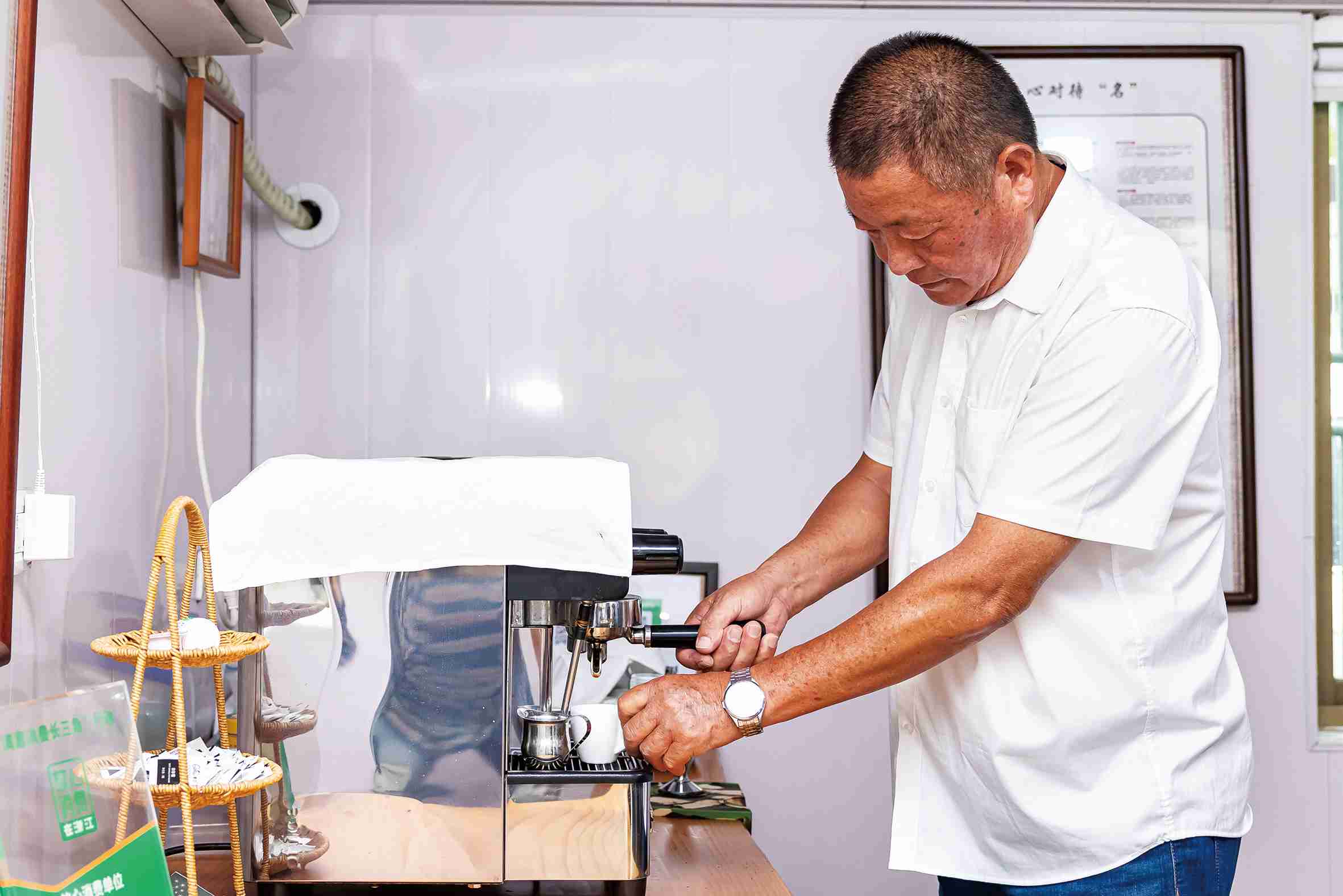
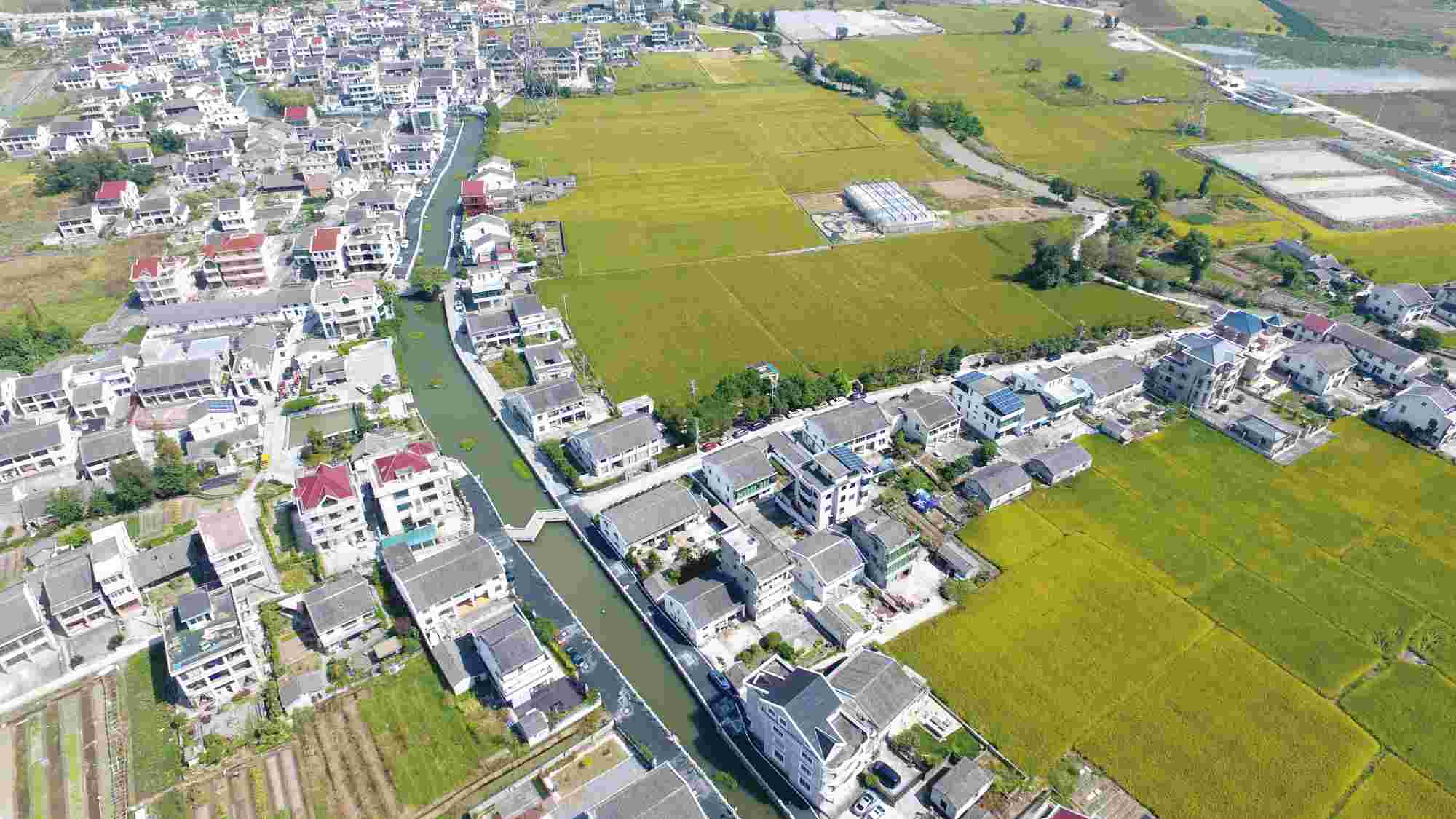




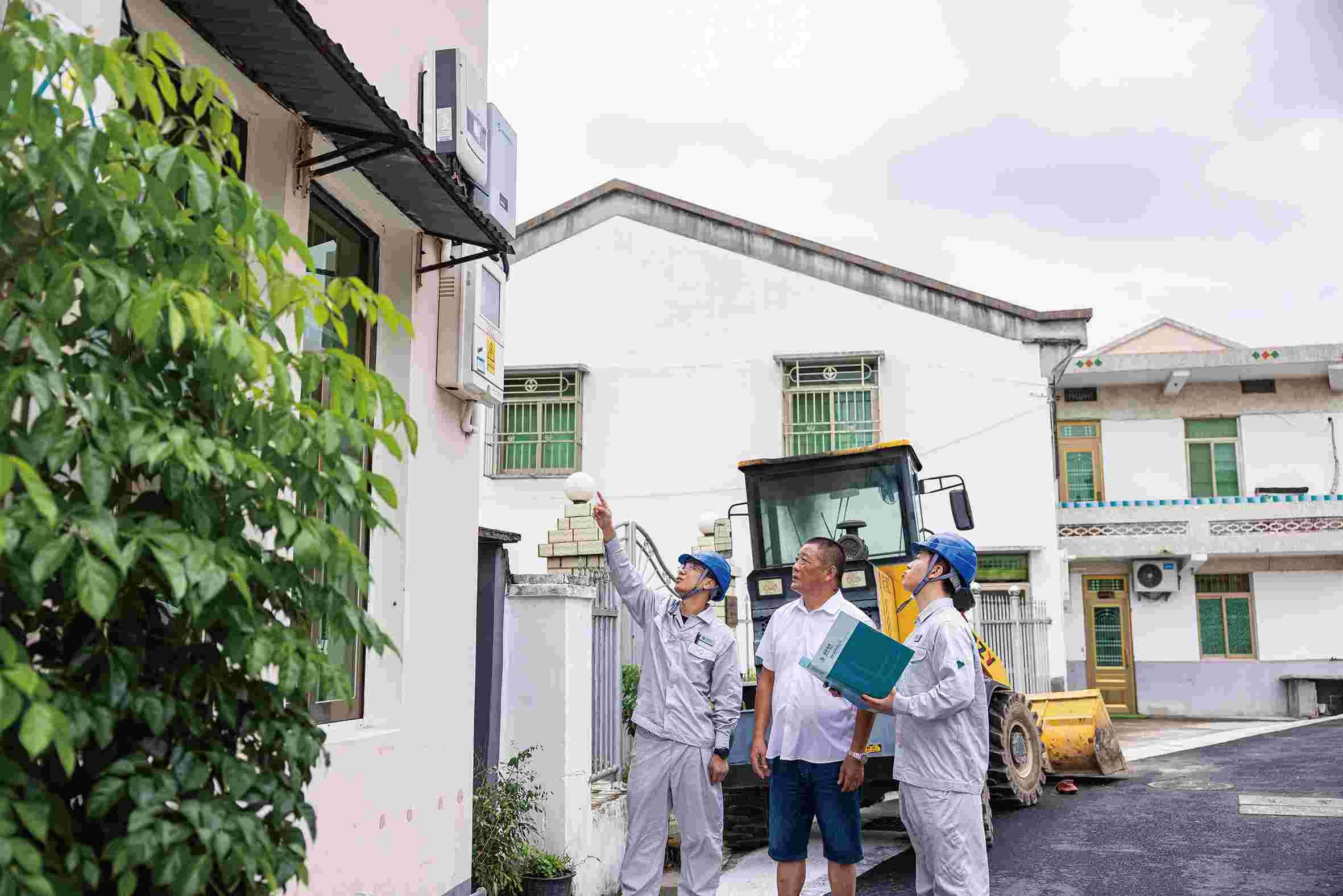
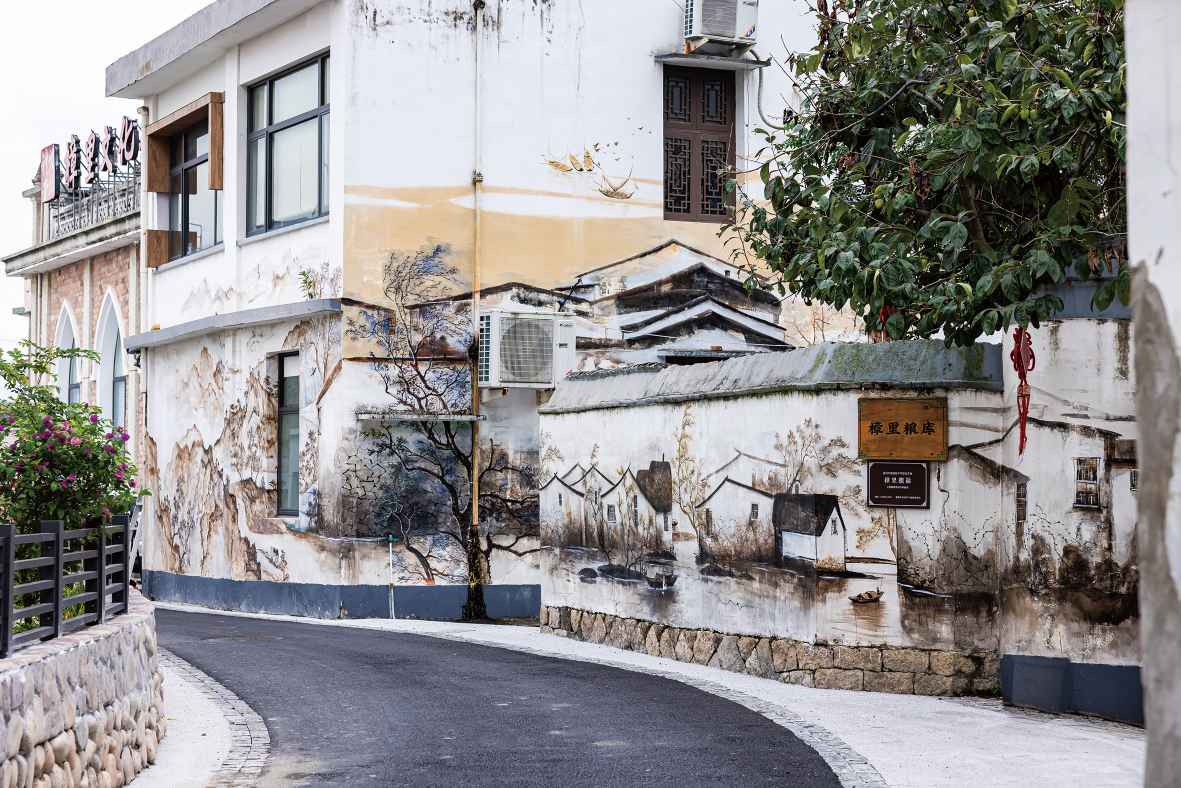
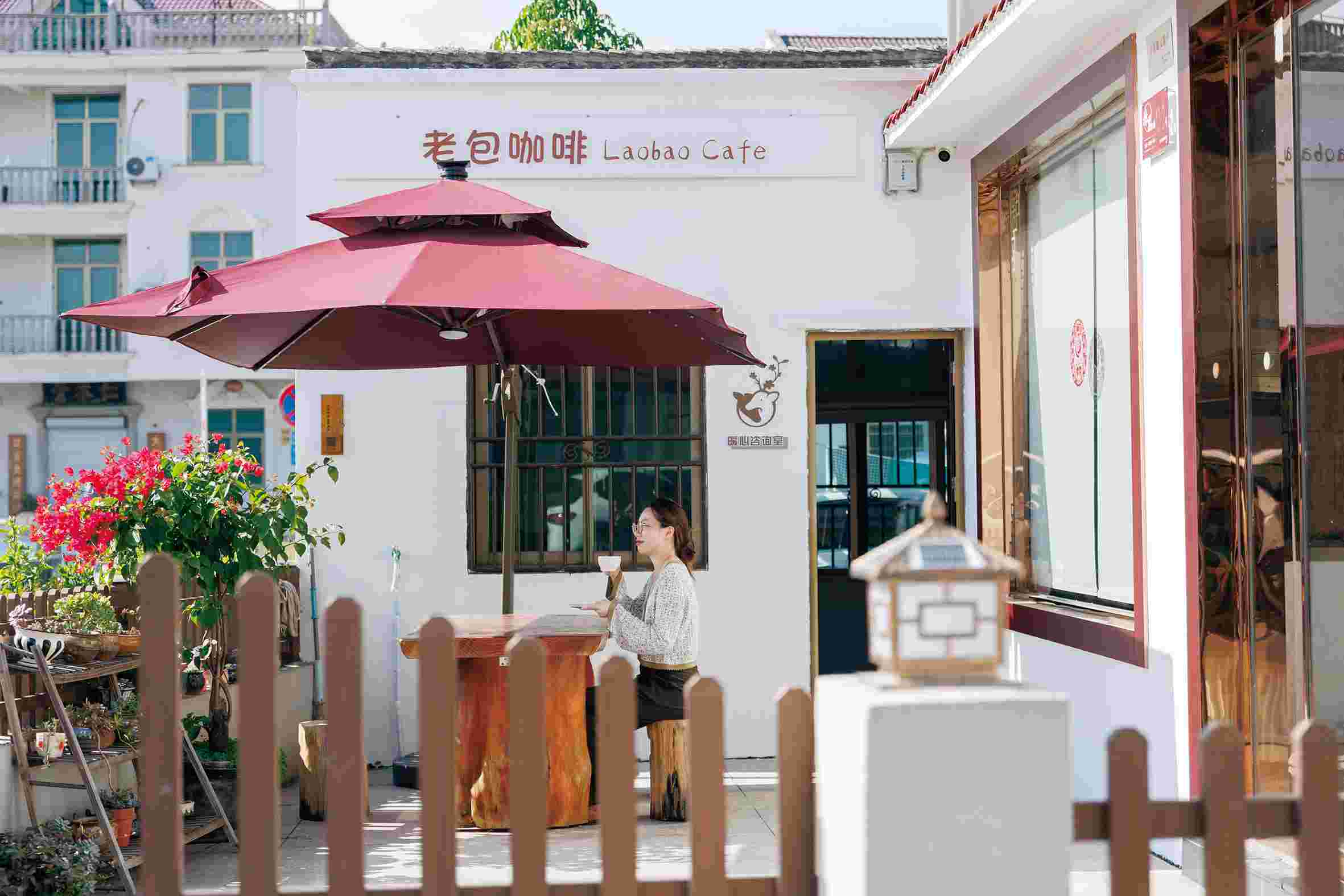
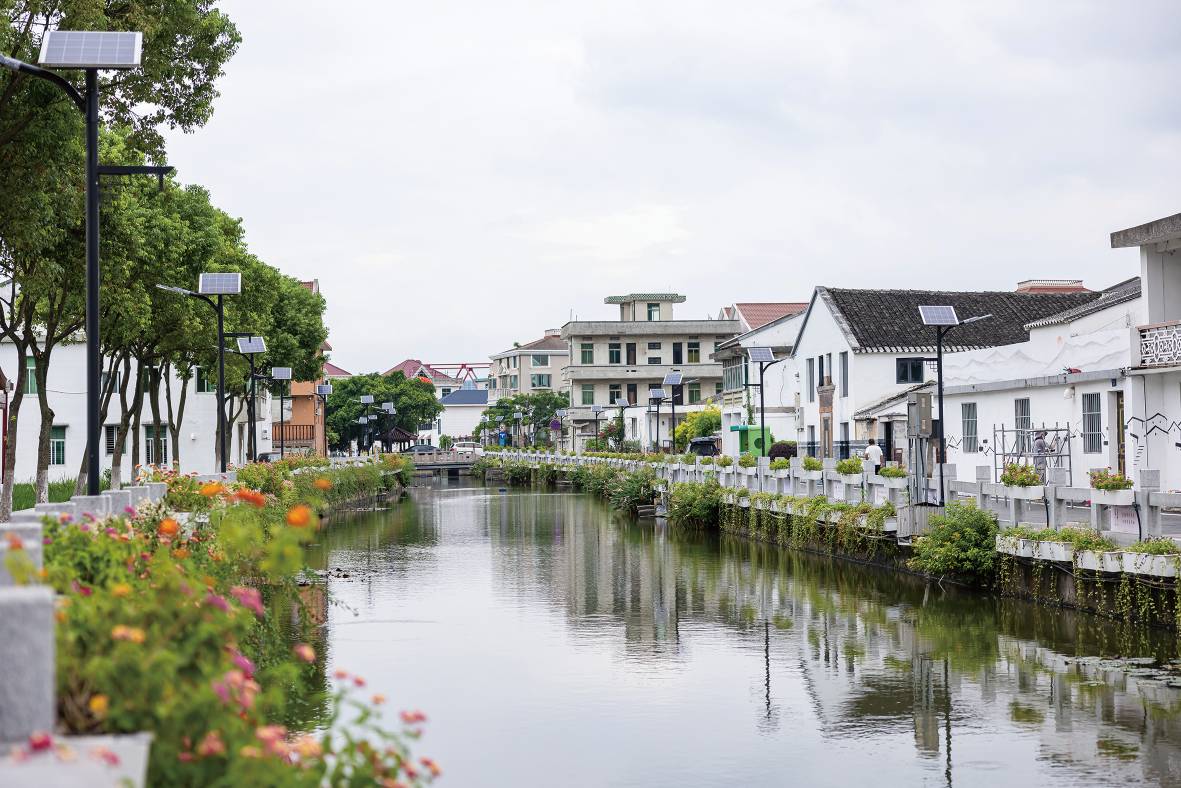
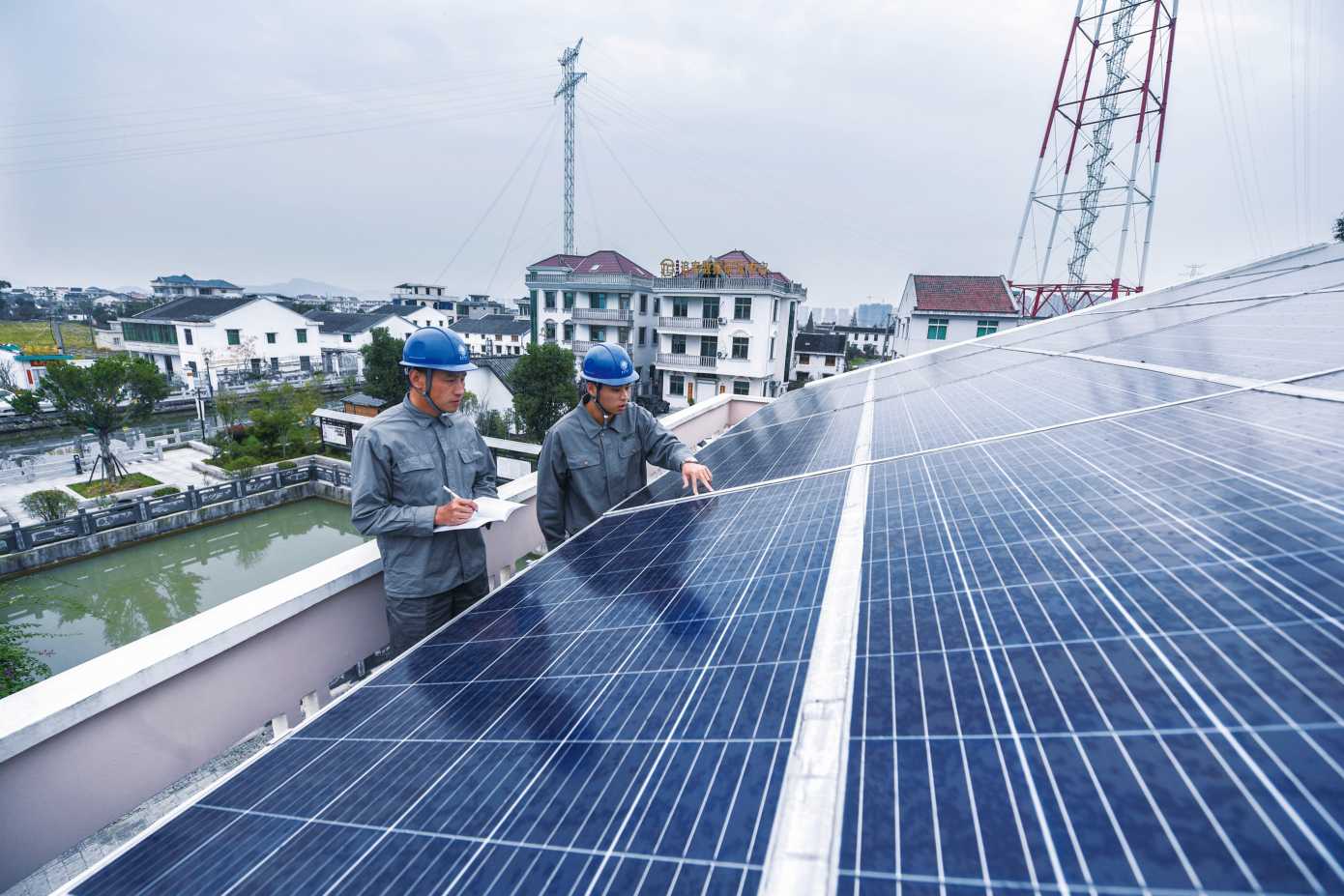
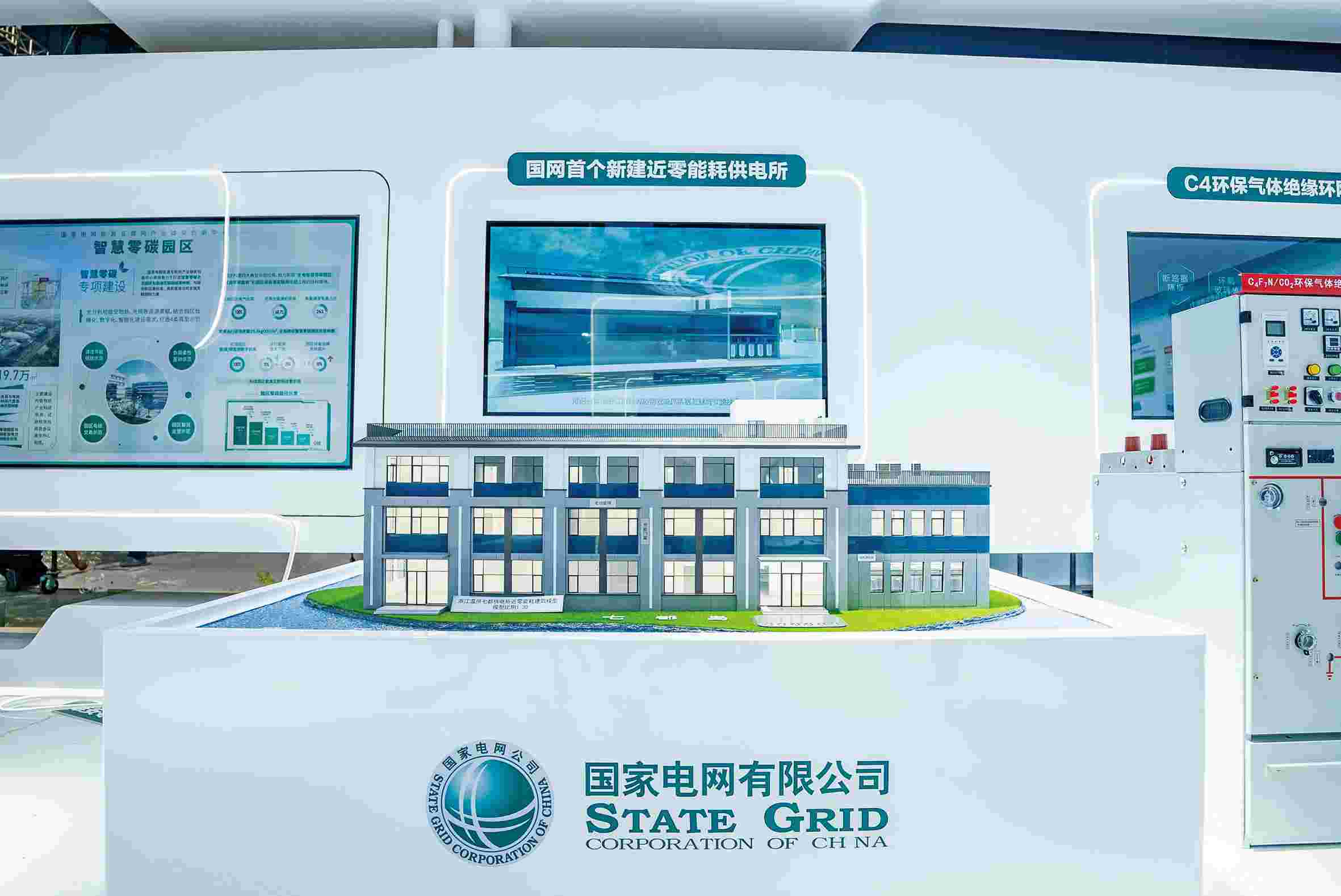


 Back
to top
Back
to top